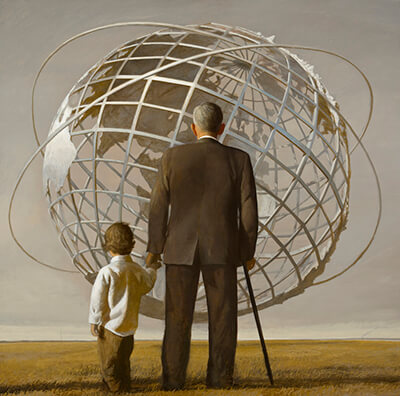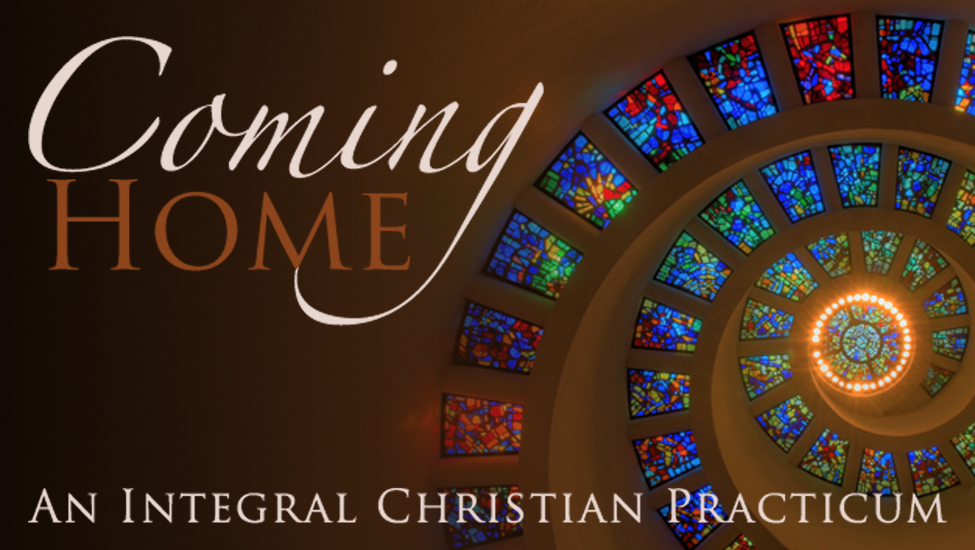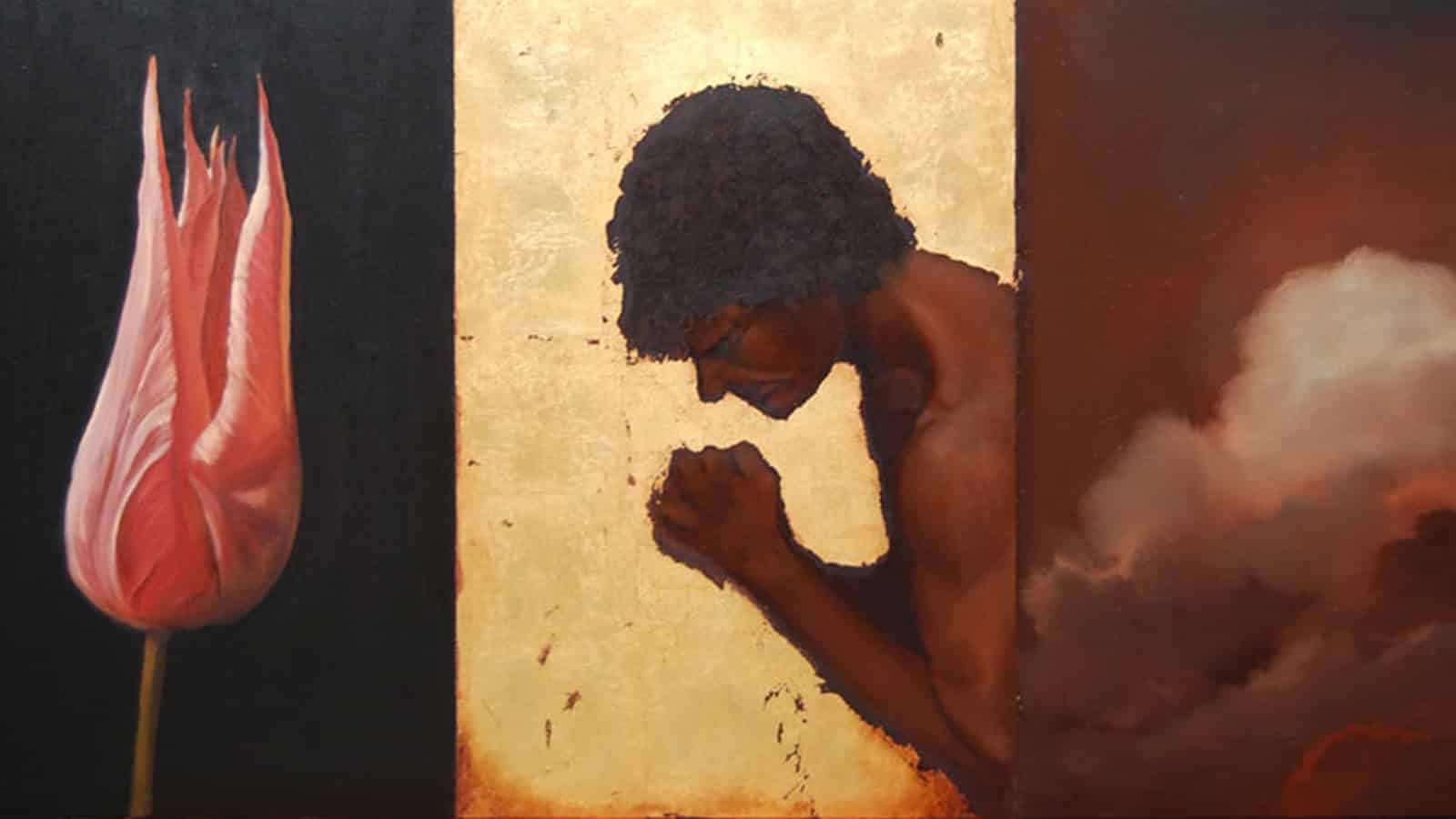Father Thomas Keating
Father Thomas Keating is considered by many to be one of the few genuinely realized Christian saints in the world today. He continues to be a prominent voice in the Christian Centering Prayer movement through the organization he founded, Contemplative Outreach, an international network committed to renewing the contemplative dimension of the Gospel in daily life.
"The modern world lies under a pervasive sense of anguish, of being abandoned, or at least experiencing God as absent. Yet events that seem to turn our lives upside down and inside out are part of God's redemptive plan, not only for us, but for the world in which we live. God may be preparing a great awakening for the world, if God can find enough people to cooperate in this mysterious plan."
Fr. Thomas, born in New York in 1923, entered the Cistercian Order in Valley Falls, Rhode Island in 1944 and was appointed Superior of St. Benedict's Monastery of Snowmass, Colorado in 1958. Three years later he became Abbot of St. Joseph's Abbey of Spencer, Massachusetts, before retiring to Snowmass—a small mountain community of just over a dozen monks—in 1981, where he remains today.
Although the Centering Prayer movement did not officially take off until the late seventies, Fr. Thomas had been interested in the mystical roots of Christianity since the early 1940s while a student at Yale, where his entire Roman Catholic worldview was shaken by a freshman philosophy class. While studying Thomas Aquinas's Catena Aurea, a line-by-line exposition of the four Gospels, Fr. Thomas had a sudden intuition of the importance of Scripture as spiritual metaphor—a metaphor pointing to the possibility for all men and women to experience a direct union with the Divine through spiritual practice.
One such example of Scripture—Matthew 6:6, where Jesus says, “If you want to pray, enter your inner room, lock the door and pray to your Father in secret. Your Father, in secret, will reward you”—became the rallying cry of the Desert Fathers of the third and fourth centuries who further developed the practice of “pure prayer,” named for its ability to circumvent thought to rest directly in the presence of God.
The contemporary form of centering prayer was initially developed during Fr. Thomas's tenure as abbot at St. Joseph's, where he was inspired by the Second Vatican Council's call for spiritual renewal in the Catholic Church. Fr. Thomas would soon seek ways to keep young Catholics from leaving the Church in search of more contemplative—and Eastern—paths.
With the help of Fr. Thomas and other Christian contemplatives like Thomas Merton, Fr. John Main, and Fr. Basil Pennington, the movement struck an obvious chord, drawing thousands of Catholics, Episcopalians, Methodists, and others to workshops and retreats, especially the ten-day retreats at St. Benedict's, which often fill up a year in advance.
It helps that Fr. Thomas also has an unusually open-minded attitude towards the meditative practices of other traditions and has studied with spiritual teachers from a variety of Hindu and Buddhist lineages, for this led to the creation of the Snowmass Interreligious Conference in 1982, where teachers from diverse paths met regularly to compare notes and evaluate the successes and failures of their respective practices. Other organizations graced by the presence of Fr. Thomas include the Monastic Interreligious Dialogue (which sponsors exchanges between the monks and nuns of every religion), and the International Committee for Peace Council.
Fr. Thomas is also a best-selling author, having penned, along with many other publications, Open Mind, Open Heart in 1986, a clarion call for many to the need for transformational practice within the Christian tradition.
Amazingly, within this flurry of activity Fr. Thomas has nevertheless found the time to deepen his own relationship to the Divine—which he likens "to two friends sitting in silence, being in each other's presence"—to such a degree that he is sought the world over for his extraordinary warmth, humility, and deep-centered love.






Comments
Thank you so much for the privilege of hearing this Holy man initiate a short practice of Centering Prayer.
I find the following quote from Nisargadatta helpful to me with centering in prayer. “Being unattached to thought in the waking state is
the deepest form of worship. ” To me ‘God in the 2nd person prayer’ is a blending of wisdom and devotional practice. Turning inward
recognizing we are nothing, no-thing that is conceivable, perceivable, definable, or that can be limited is wisdom. Turning outward realizing we are all manifestation is loving devotion. Nisargadatta’s quote can be felt as the divine life force expressing turning between the two.
Fr. Keating’s voice brings an immediacy, intimacy and tenderness to the practice of Centering Prayer.
I am most grateful to have it available from this living sage. Thank you.
Thank you so much Fr. Keating for sharing your state of prayer. Much love.